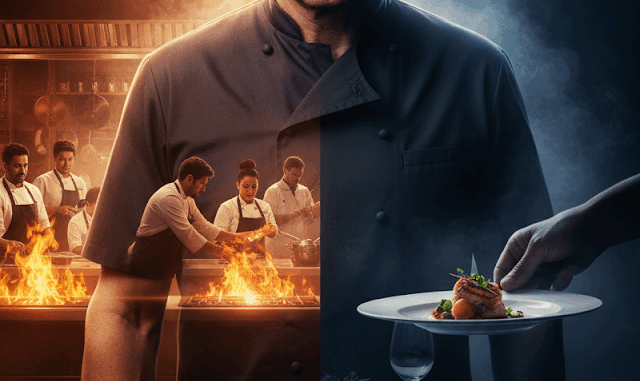
For years, MasterChef has sold itself as the ultimate test of culinary skill, a stage where amateur chefs battle it out under the unforgiving glare of Gordon Ramsay and a panel of seasoned judges. The drama, the tension, the sweat-soaked faces of contestants plating at the last second—all of it feeds into the high-stakes magic that has made the show a global phenomenon. But now, a shocking allegation is spreading among fans and former crew members alike: not every dish presented to Ramsay and the judges was actually cooked by the contestants on camera.
The rumor first surfaced in whispers on industry forums before exploding into full-fledged debate across social media. Some fans pointed out inconsistencies they’ve noticed for years—perfectly plated dishes appearing seconds after chaotic kitchen footage, desserts with levels of polish and technical execution that seemed far beyond the abilities of self-proclaimed “home cooks,” and continuity errors where plates magically changed between wide shots and close-ups. “I’ve rewatched enough episodes to know something is off,” one Reddit user claimed. “There’s no way these amateurs produced Michelin-star-level desserts in 60 minutes without help.”

Behind the scenes, anonymous production insiders have fanned the flames further. According to one alleged crew member, certain “hero dishes” were occasionally recreated off-camera by professional food stylists or culinary consultants to ensure the judges had a flawless version to taste for television. “Not every plate was swapped,” the source insisted. “But when time ran out and a dish was a total disaster, they’d sometimes bring in a backup version so the show had something usable for the cameras.”
If true, this revelation would shatter the carefully cultivated image of MasterChef as an authentic competition. The very idea that contestants—ordinary people chasing their culinary dreams—may have had their victories padded with behind-the-scenes assistance undermines the raw, do-or-die narrative Ramsay projects on screen. Fans are already voicing feelings of betrayal. “We root for these people because it’s supposed to be real,” one viewer wrote on Twitter. “If the dishes aren’t actually theirs, then what’s the point?”
The accusations are particularly damaging given Ramsay’s reputation for authenticity. He has built a career on his fiery demand for honesty and excellence, famously calling out chefs who cut corners or fake their skills. The suggestion that his flagship competition might be guilty of similar shortcuts has left fans both stunned and furious. “It’s the height of hypocrisy if Gordon knew about this,” another fan posted. “He screams at people for serving raw scallops, but the show might be serving us staged food?”
Naturally, producers have stayed silent, offering no official comment despite mounting pressure. The lack of transparency only fuels speculation, with some fans vowing to boycott the show until there’s clarification. Others defend the series, arguing that television is entertainment first and foremost, and that minor adjustments are necessary to maintain quality. “Do you really think judges want to eat burnt food every week?” one commenter argued. “It’s still a competition, but it’s also TV. Of course they’ll polish it up.”
Still, the potential fallout is huge. MasterChef markets itself on the premise of authenticity—the tears, the triumphs, the unfiltered pressure cooker of culinary combat. If audiences come to believe the food on screen isn’t entirely the contestants’ work, the show risks losing the trust that has fueled its success for over a decade.
For now, the truth remains buried under layers of speculation and secrecy. But one thing is certain: the next time viewers watch a flawless soufflé rise on MasterChef, they’ll be wondering—was it really the contestant’s masterpiece, or just another TV illusion carefully plated for Gordon Ramsay’s approval?